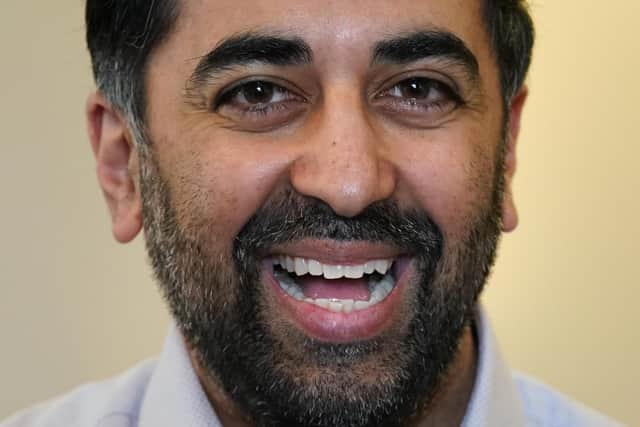Scottish independence: SNP MPs push for Holyrood election in 2026 to be 'de-facto' independence referendum
The next Holyrood election in 2026 should be used as a de-facto referendum on independence if a UK Government of any colour continues to refuse to allow indyref2, a group of SNP MPs have said.
The intervention is the latest in the internal divisions over the party’s strategy for independence, set to be debated at the party’s conference in just under two weeks in Aberdeen.
Advertisement
Hide AdAdvertisement
Hide AdAmendments include plans to potentially fight the next Scottish Parliament election, due to be held in May 2026, as a de-facto referendum on independence.


This represents a renaissance of the strategy first brought forward by Nicola Sturgeon prior to her resignation, whereby 50 per cent plus one of the overall votes cast in an election for the SNP would be taken as the equivalent of a Yes vote in a referendum, a policy ditched by Mr Yousaf when he entered office.
Before Ms Sturgeon’s resignation, the SNP’s ruling body had put forward a resolution that included the option of the Holyrood election being used in such a way.
It was set to be debated at the party’s so-called ‘Special Democracy Conference’, which was later shelved and replaced with its independence convention held in June.
The amendment to the leadership’s motion states the SNP should consider whether to fight the next Holyrood election as a de-facto referendum if the UK Government continue to reject the possibility of a second independence referendum.
A majority in that election for the SNP or with another pro-independence party such as the Scottish Greens would be “considered a mandate to negotiate independence”.
It states: “Conference further agrees that should an incoming UK Government continue to refuse the demands of the Scottish people to decide their own future, consideration should be given to fighting the next Scottish Parliament election in 2026 as a de-facto referendum on independence; and that a majority at that election for the SNP – or the SNP and any other party with which we have reached a pro-independence agreement – will be considered a mandate to negotiate independence.”
Both UK Labour and the Conservatives have said they will refuse to hold an independence referendum.
Advertisement
Hide AdAdvertisement
Hide AdThe motion also states the SNP manifesto should “demand the permanent transfer of legal power to the Scottish Parliament to determine how Scotland is governed”, which would include the transfer of power to hold a referendum.
The Supreme Court found last year that this was outside of Holyrood’s current competence.
It also calls for the devolution of employment rights, creation of windfall taxes, the regulation and pricing of energy sources, employment visas, and fresh borrowing powers to help invest in a just transition.
This, those backing the amendment state, would help “properly tackle the twin crises of the cost of living and climate”.
Key backers include members of the SNP frontbenches and former allies of Ms Sturgeon.
They include Tommy Sheppard, Stewart McDonald, Alyn Smith, Dave Doogan, Anne McLaughlin and Philippa Whitford. The amendment is also backed by the London, Portobello-Craigmillar, Clackmannanshire, Edinburgh Central branches and the SNP Trade Union Group.
Humza Yousaf, the First Minister, and Stephen Flynn, the SNP’s leader in Westminster, who have put forward their own own motion, face the potential of their proposal being significantly amended by the membership.
The leadership’s motion argues a majority of seats for the SNP at the next election would spark negotiations with the UK Government to “give democratic effect to Scotland becoming independent”.
Advertisement
Hide AdAdvertisement
Hide AdThe proposals were first unveiled by Mr Yousaf at the party’s independence convention in June, but received a mixed reception from some of his own parliamentarians.
The Scotsman revealed last month that backbenchers such as MPs Joanna Cherry and Pete Wishart wanted to see Mr Yousaf’s policy changed.
Ms Cherry’s amendments include other pro-independence parties, such as Alba or the Scottish Greens, in the calculations for the “majority of votes cast” rather than simply the “most seats” won by the SNP, which would trigger independence negotiations.
She also calls for a commitment to the holding of a constitutional convention that would take forward such “independence negotiations”.
Mr Wishart also amends the leadership’s motion to replace ‘most seats’ with ‘majority of the vote’. SNP members will debate the proposals at the party’s conference in Aberdeen on Sunday, October 15.
Comments
Want to join the conversation? Please or to comment on this article.
